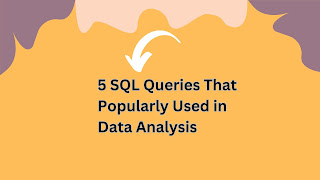While the debate over the value of a computer science degree rages on, these programming leaders emphasize the importance of a well-rounded education, with plenty of time spent studying subjects beyond the console.
The biggest challenges in life do not have technical fixes," Eich says, "so it's important to study history, literature, art, and other kinds of human knowledge than anything to do with computers.
Hickey agrees, placing programming into a broader perspective. "Programming is a very new endeavor in the historical scheme of things," he says. "One shouldn't presume that we understand how best to pursue it.
1# Tips to become a programmer
" Instead, Hickey suggests pursuing other educational interests to help understand the kinds of problems programming can solve."The best programmers are those that can understand, communicate about, and solve problems in the domains they are in," he says. "Software is just a tool for that."
Johnson agrees that would-be programmers should investigate subjects outside the CS lab and mathematics department to help round out their education because, ultimately, "programming is about people rather than math." Even when it comes to pursuing CS as a degree, Johnson is "torn."
2# Simple way to learn
"Mostly one uses things learned on the job," Johnson says. "There's a real value in a good CS education, but I've seen a lot of great programmers who had different backgrounds." Van Rossum agrees.
"You have people who come with an English degree and they go to a Django Girls workshop, and from then on they are Web developers," he says. "You also have people who go through the traditional four years of college with a major in computer science."
3# Solving Problems
Of course, the theory does have its place, Johnson says, even in the real world. "Yesterday I used some compiler theory that I learned as a CS student, and it helped me get a neat, robust solution to the problem I had," he says. "But that doesn't happen very often."
Eich sees more value in studying mathematics as mathematics, rather than as a pretext for studying computer science theory.
"Programming is not all about mathematics, sometimes hardly at all," he says. "But if you're good at math, study it as math while you are young. Don't worry about programming so much."
Van Rossum goes a bit deeper, recommending "the kind of math that develops logical thinking."
Schlueter has a different theory for going generally before becoming a programmer:
4# Additional skills
"A liberal arts education is a great way to spend four years after high school if you can afford it," he says. "There won't be another time in your life when you can mostly just goof off and party for that long with societal approval."
If you do take him up on his suggestion, Schlueter also offers advice that's deadly practical: "State schools are way cheaper, and student loans are no joke, so be thrifty," he says.
"Try to get any scholarship or grants that you can." Writing, Schlueter argues, is a key facet of being a strong programmer.
5# Really You Need to go to College
"Whether you go to college or not, try to make time as early as possible to read lots of literature and philosophy, both primary and secondary sources, and write as much as you can," he says.
"If you're not going to college, then as soon as you can, shell out for a writing tutor who'll give you assignments and then help you polish them. This job happens on the Internet, and the written word is how people communicate there. The more effectively you can write, the better off you'll be."
As for where that exciting work may be for young programmers planning future careers, Eich suggests "space, 3D printing, 3D rendering, bioinformatics, web."
-
3D printing -- also known as additive manufacturing -- turns digital 3D models into solid objects by building them up in layers.
- The technology was first invented in the 1980s, and since that time has been used for rapid prototyping (RP).
However, in the last few years, 3D printing has additionally started to evolve into a next-generation manufacturing technology that has the potential to allow the local, on-demand production of final products or parts thereof.
-
Already it is possible to 3D print in a wide range of materials that include thermoplastics, thermoplastic composites, pure metals, metal alloys, ceramics and various forms of food. Right now, 3D printing as an end-user manufacturing technology is still in its infancy.
- But in the coming decades, and in combination with synthetic biology and nanotechnology, it has the potential to radically transform many design, production and logistics processes.
- This web page provides an overview of 3D printing technologies, as well as their present and likely future application.
- For a full list of 3D printer manufacturers, bureau services and other market players, please see my 3D Printing Directory. And for 300 pages on the subject, you may be interested in my book 3D Printing: Second Edition



.jpg)
Comments
Post a Comment
Thanks for your message. We will get back you.